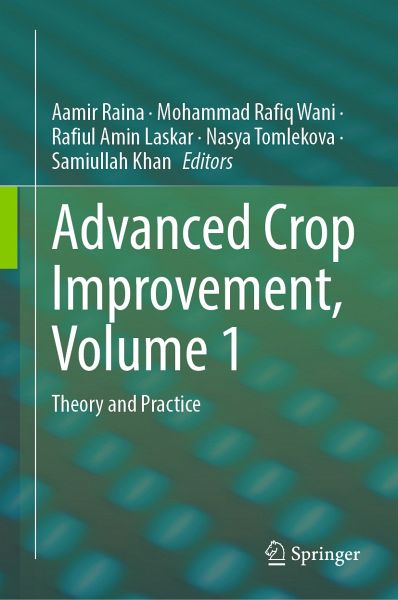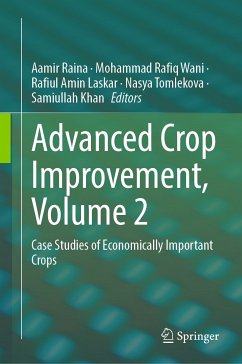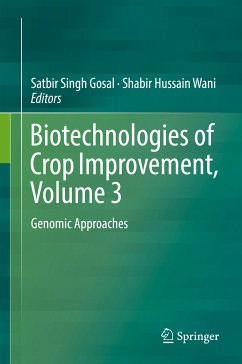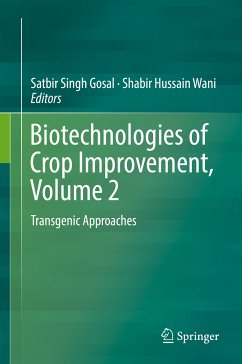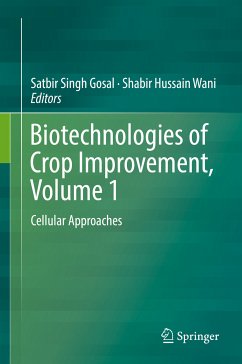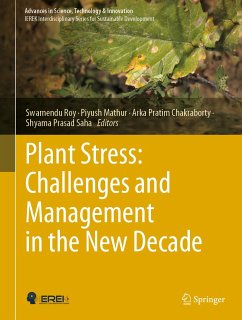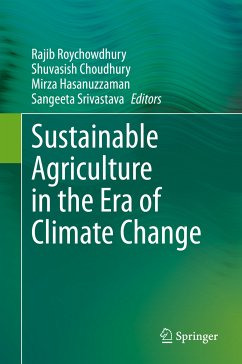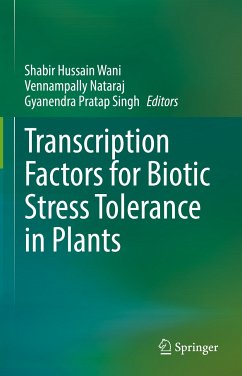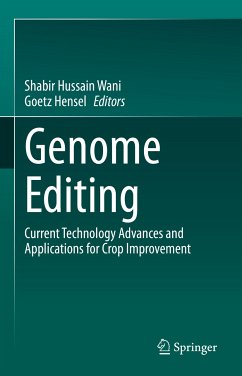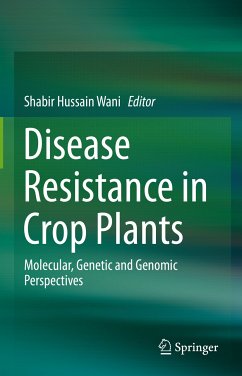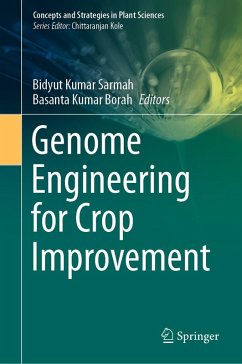Aamir Raina is currently working as Assistant Professor in Department of Botany, at Aligarh Muslim University, Aligarh, India. Dr. Raina obtained his Masters in Botany in 2013 with specialization in Genetics and Plant Breeding from the University of Kashmir, Srinagar, Jammu and Kashmir, India. Dr. Raina earned the Degree of Doctorate in 2018 for his research work on "Induced Mutagenesis in Cowpea" from the Aligarh Muslim University, Aligarh, India. His current research interests are the selection for novel mutations induced by mutagens in pulses, medicinal and aromatic plants and elucidation of physiological and molecular mechanisms in response to mutagens and looking for suitable germplasm donors for breeding purpose. Working on the mutagenesis of plants, Dr. Raina has found a significant role of mutagens in the regulation of plant growth and development and have suggested that mutagens could play an important role in improving the yield and yield attributing traits of crops. Recognizing the contribution of Dr. Raina in the field of mutation breeding, International Atomic Energy Agency (IAEA), Vienna, Austria appointed Dr. Raina as Technical Corporation Expert and Lecturer to conduct National level mutation breeding training in Sudan. The successful conduct of Dr. Raina in different IAEA projects as an expert supported his research in mutation breeding of crops and proved his ability to work in a multicultural environment. Considering all his achievements and outstanding contributions in the field of Plant Science, he has been conferred with various research fellowships including CSIR JRF, DBT-SRF, GATE, ICAR NET, JKSET and Nuffic OKP (received from Dutch Ministry of foreign Affairs, The Netherlands) and awards including National Environmental Science Academy (NESA) Young scientist and Bharat Vikas Award. He has been recognized as Young Scientist of the Year 2018, receiving the award from President of NESA, India. Dr. Raina has published more than 40 journal articles and 25 book chapters. Dr. Raina has edited special issues on research topic entitled "Legume Breeding in Transition: Innovation and Outlook" in Frontiers in Genetics and "Emerging Talents in Horticulture Breeding and Genetics 2022" in Frontiers in Horticulture. He is among the editorial board members of many scientific journals such as Frontiers in Plant Science, Frontiers in Genetics, Scientific Reports, PLOS One, and BMC Plant Biology. Dr. Raina has participated and presented several research papers in different national and international conferences. Dr. Raina has also attended many workshops, trainings, and short courses under scholarships from national and international funding agencies. Mohammad Rafiq Wani is currently working as Assistant Professor (Selection Grade) in the Department of Botany at Abdul Ahad Azad Memorial Degree College Bemina, Cluster University Srinagar, Jammu and Kashmir, India. Dr. Wani did his Masters' degree in Botany in 2003 with a specialization in Genetics and Plant Breeding from Aligarh Muslim University (AMU), Aligarh, Uttar Pradesh, India. After obtaining the Degree of Doctorate in 2008 for his research work on "Chemical Mutagenesis in Mungbean" from the same university, he joined the Department of Higher Education, Jammu and Kashmir Government in 2009. He teaches a range of bioscience-related subjects at undergraduate and postgraduate levels. Dr. Wani's research interests are primarily focused on induced mutagenesis and molecular biology in food crops more particularly in pulse crops. As a part of his research endeavor, Dr. Wani has extensively researched and written on the issues of induced mutagenesis in food crops, with special reference to pulses. He has published more than 65 research papers in peer-reviewed journals and 20 book chapters in various research-oriented volumes. Dr. Wani, while constantly working for his academic and research interests, has so far edited six volumes of books on the subjects of Plant Stress Physiology, Induced Plant Mutagenesis, and Crop Improvement with reputed international publishers like Springer and Wageningen Academic Publishers, the Netherlands. Rafiul Amin Laskar is Assistant Professor of Plant Sciences affiliated with the Department of Botany, Pandit Deendayal Upadhyaya Adarsha Mahavidyalaya (PDUAM), Eraligool, Karimganj, Assam, India. He received his M.Sc. in Botany with specialization in Genetics and Plant Breeding in 2012 and DBT-PDTC in Plant Tissue Culture and Micropropagation in 2013 from the Aligarh Muslim University, Aligarh, India. Dr. Laskar has obtained his Ph.D. in 2018 from the Faculty of Life Sciences, Aligarh Muslim University, Aligarh, India, for his work on Induced Mutagenesis. After completing his Ph.D., he worked as a Guest Faculty at Nagaland University, Lumami for over 1 year and as an Assistant Professor at Bahona College, Jorhat for over 3 year. Dr. Laskar is actively engaged in research on mutation breeding in grain legumes for genetic improvement of qualitative and quantitative traits. He is a life member of the various educative societies and associations and had been active member of the interdisciplinary societies. To his credit are edited book, 10 book chapters published by reputed publishing companies like Springer and more than 50 other publications as research papers, editorials, popular science articles, review papers, and other reports. He has edited a special issue entitled "Legume Breeding in Transition: Innovation and Outlook" in Frontiers in Genetics and is serving as Editorial Board Member of many journals. He has presented a number of research papers in various national and international conferences and symposiums. He has attended many workshops and short courses under scholarship from national and international bodies. He has acted as the co-coordinator of the Institutional Biotech Hub, Bahona College funded by Department of Biotechnology, India. Dr. Laskar has served as the Co-Principal Investigator for the project titled "DBT-NER Institutional Biotech Hubs at Bahona College, Jorhat, Assam with a Focused Area of "Development of Infrastructure and Skilled Human Resources Through Science & Technology Intervention". Currently he is maintaining an active student research program on induced mutagenesis of food crops, cytogenetics, and in vitro tissue culture of economically important plants focusing on plant genetic resources of North East India. Nasya Tomlekova is Professor and Head of Molecular Biology Laboratory in the Department of Breeding at the Maritsa Vegetable Crops Research Institute, Plovdiv, Bulgaria. She graduated from Sofia University "St. Kliment Ohridski" in Biology and did her Masters with specialization in Genetics and Biochemistry. She has been employed in the Institute in 1990; trained in the area of her research interests by 12 international fellow¬ships; and she has a long postgraduateexperience in research on the application of induced mutagenesis, molecular and in vitro techniques, and other relevant biotechnologies related to crop improvement. Mrs. Tomlekova obtained the Degree of Doctorate at the Commission on Plant-Growing and Biotechnologies and her Habilitation was at the Commission on Breeding and Seed Production. She has published 5 books, including a methodological recommendation, and 11 book chapters, 121 scientific papers in peer reviewed journals and 43 international conference proceedings. Prof. Tomlekova teaches on several topics related to biotechnology and she has trained many students and fellows from different countries at Ph.D. and post- and undergraduate levels. She conducted dozens expert missions as a lecturer in different countries from Asia and Africa. Dr. Tomlekova acted as lead editor of 2 books by Wageningen Publisher, and she is a member of 3 journal editorial boards, a reviewer of more than 30 international bioscience-related journals and projects, and a member of 5 professional scientific societies, like EUCARPIA, International Carotenoid Society, and International Pepper Network. The successful participation of Prof. Tomlekova in nine different IAEA and an EU projects as coordinator/scientific holder, and supported her research in mutation breeding of vegetable crops and potato and proved her ability for a work in a multicultural and multilanguage environment from and outside Europe. Also, she has managed projects and participated in many research teams of national and international projects. Her research focuses on the field of molecular biology with applications in agriculture, induced mutagenesis, genetics, biochemistry, and molecular marker selection. Samiullah Khan is currently working as Professor and Head of Genetics and Plant Breeding, and Plant Biotechnology in the Department of Botany at the Aligarh Muslim University, Aligarh, India. Dr. Khan obtained his Ph.D. in 1990 from Aligarh Muslim University, specializing in Genetics and Plant Breeding. He has 29 years of teaching experience in Embryology of Angiosperms, Genetics and Plant Breeding and supervised a number of Ph.D., M. Phil., and M.Sc. projects. He has edited several books and published more than 100 research papers in journals of national and international repute. He has attended many conferences in India and abroad including XVIth International Congress of Genetics at Toronto, Canada. He is a mem¬ber of editorial board of many scientific journals. He is a fellow of the Indian Society of Genetics and Plant Breeding.
